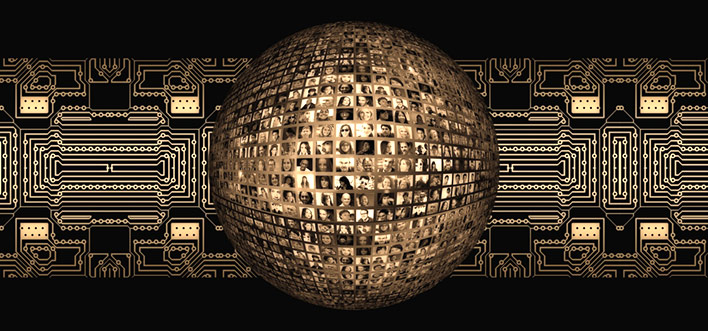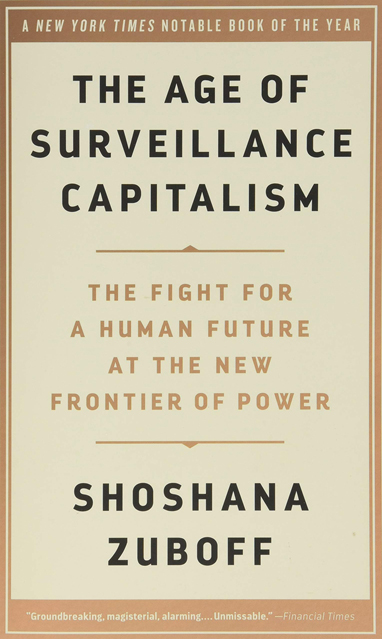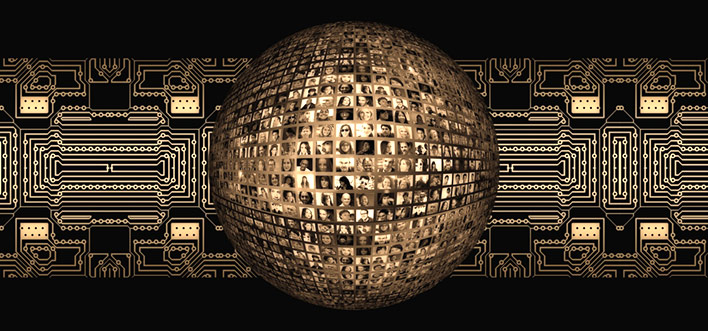
The Impact of Digital Technologies
Technological developments over the past 50 years have transformed human life like nothing before. Computers have revolutionized every aspect of life in the 21st century: communication, social relationships, commerce, politics—and even creativity. Some of these impacts have been negative and damaging. These changes are only accelerating, so it is critical that we do our best to understand—and control—them.
Viral Ideas

The COVID-19 Pandemic and Misinformation
We are in the midst of the greatest revolution in communication technology since humanity spread across the globe. However, experts in the fields of media, journalism, and communications have been warning us for years that social media is using us more than we are using it.
Information Warfare and Reality Distortion
We have created a world in which information flows more freely and efficiently than ever before. And yet we are finding it harder to understand one another and to agree on basic facts about reality. For some, it is an opportunity to deliberately manipulate the perceptions of others for their own benefit.
Technology and Fragmentation
In their book, 'The Axemaker’s Gift,' James Burke and Robert Ornstein show that every tool or technology ever invented took on a life of its own, changing humanity in ways that were neither suspected nor predicted by their original designers and recipients.
The Science of Fake News
The amount of false news online is clearly increasing, with serious consequences. Yet we still don't have an accurate enough understanding of the role that human behavior and human perception play in its dissemination and perpetuation.
The Age of Surveillance Capitalism
"Surveillance Capitalism" is a new paradigm of free enterprise whereby big tech corporations seek to convert all human experience into data, and create wealth by predicting, influencing and controlling human behaviour at scale.
On Tyranny
It is not the ordinary that drives us, but our emotions, especially fear and greed. To focus such drives, we look to leaders who often manipulate these emotions, and our tribal instincts, to harness us against some demonized “other.”
The True Believer
Tyranny cannot rise by force alone. A tyrant needs the consent of the majority made compliant and enthusiastic by circumstance, attitude, and indoctrination. But understanding these mechanisms can help us avoid such manipulation.
Mr. Putin: Operative in the Kremlin
In 'Mr Putin: Operative in the Kremlin', Fiona Hill and Clifford Gaddy tell the story of the demise of the USSR and the rise of Putin as a new tsar of a revived imperial Russia, harking back to its pre-communist past.
Taming the Web

The Evolution of Online Social Networking
To understand online social networks right now we need understand how the 'World Wide Web' has changed from when it was first invented by Tim Berners-Lee in 1989. The transition from then to now has been made possible by the pervasive use of computer algorithms.
What is a Social Media Algorithm?
The earliest World Wide Web (Web 1.0) was a static network of websites, search engines, the pre-web UseNet groups and AOL conferencing. It resembled a vast library where you would find things of interest through the search engine and retrieve the best content brought back from search results. With the next iteration (Web 2.0), companies stayed away from generating any content, virtual reality or otherwise, and focussed their attention on the network, itself. The user experience of Facebook, Twitter, and YouTube were pared down to simple scrolling web pages. All content came from the users—or the advertisers. All the money, the millions of dollars in investment capital, was spent on algorithms that enhanced social networking.
Social Networks

The Great Attention Heist
Recent revelations by IT professionals and social media executives confirm that their products were intentionally designed to “consume as much of your time and conscious attention as possible.”
The Marketplace of Ideas
Social networks, the ones we have belonged to ever since we ventured out of the trees and onto the savannah, have always been our most important source of information. More than ever before we need to understand the nature of such networks and the impact of digital technology, taking into account what we know about human perception and psychology.
Algorithmic Gatekeepers
What happens when the social media algorithms become the gatekeepers of our information ecosystem?
Why Does Misinformation Spread So Easily?
A very basic problem that hinders journalists, scientists, and medical professionals from successfully fighting false information is their failure to take into account well-established facts about human perception and psychology where misinformation is concerned.
You Can’t Not Believe Everything You Read
“If you tell a lie big enough and keep repeating it, people will eventually come to believe it.” —Joseph Goebbels, Minister of Propaganda for Nazi Government for the Third Reich
Reclaiming the Public Square
To help bring about a healthy information ecosystem online, and thus a healthy society free of mass manipulation, we need to not just learn about our human nature but also make effective regulatory reforms.
The Anxious Generation
“It matters what we expose ourselves to…we need to take back control of our inputs.”
—Jonathan Haidt

The Anxious Generation
How the Great Rewiring of Childhood Is Causing an Epidemic of Mental Illness
An essential investigation into the collapse of youth mental health—and a plan for a healthier, freer childhood.
By Jonathan Haidt (2024)

On Tyranny
Twenty Lessons from the Twentieth Century
Timothy Snyder
It is not the ordinary that excites and drives us, but our emotions, especially fear and greed. To focus such drives, we look to a leader, and leaders often manipulate these emotions and our tribal instincts to harness us against some demonized “other”—like the Jew for the Nazis; the Rwandan Tutsi for the Hutus; or people of color for White Supremacists.

The Age of Surveillance Capitalism
The Fight for a Human Future at the New Frontier of Power
Shoshana Zuboff
The internet has developed a new form of exploitation, like nothing we’ve seen before. The apt term Shoshanna Zuboff coins for it, “surveillance capitalism” describes a novel paradigm of free enterprise which seeks to convert all human experience into data, and create wealth by predicting, influencing and controlling human behaviour at scale.

